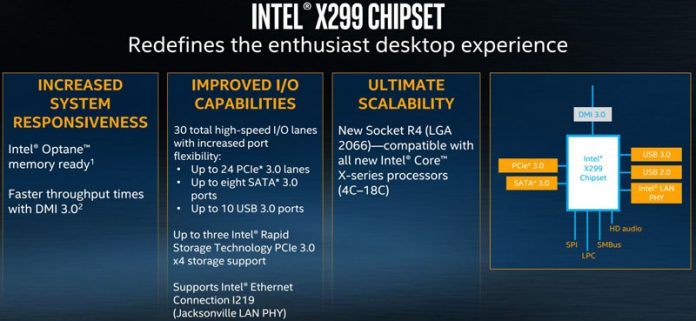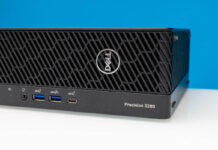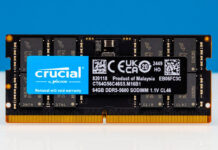Ahead of tomorrow’s AMD Threadripper introduction, Intel launched a new high-end desktop platform. The Intel X299 platform is the anointed successor to the X99 platform meant to handle the new Intel Core X series of CPUs, including the new 18 core/ 36 thread Core i9. Whereas the Intel X99 platform used the mainstream Xeon LGA2011 socket, the new Intel X299 platform uses the LGA2066 socket. While in a similar socket we have had up to 22 cores (e.g. the Intel Xeon E5-2699 V4), the new platform has high(er) core count chips than the LGA2011 but has a key advantage over previous Xeons at the same core counts: clock speeds.
The Intel Core X series and Intel X299 Platform
Here is a quick primer on the Intel Core X series that will range from Core i5 to Core i9 models at launch:
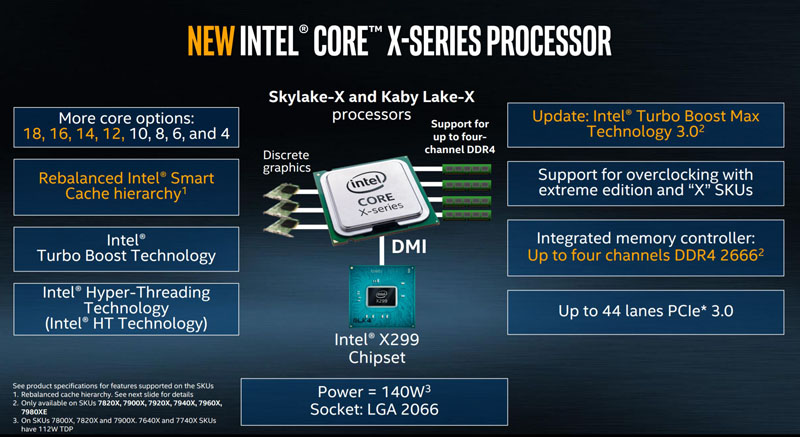
With a new LGA2066 socket, we also have a new Intel X299 chipset. The chipset has many familiar features such as quad channel DDR4 support.
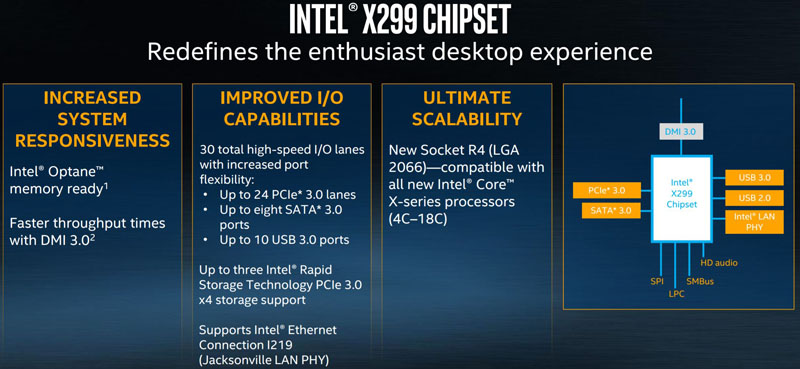
A key item here is that while the I/O lanes may have changed, the SATA 3.0 lanes are starting to be phased out. SATA III ports have fallen to “up to eight” from ten in the previous generation.
Unlike Skylake-SP, we do not see 10GbE support nor Omni-Path support on this platform.
Here is a chart comparing the previous generation X99 platforms and the new Intel X299 chipset.
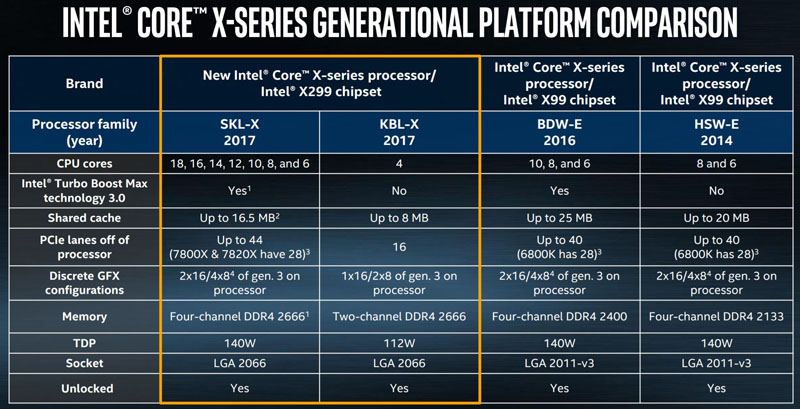
Conveniently, the SATA port count has been left off of this chart provided by Intel.
In terms of industry support, at Computex 2017 we saw actual walls covered in Intel X299 based motherboards:
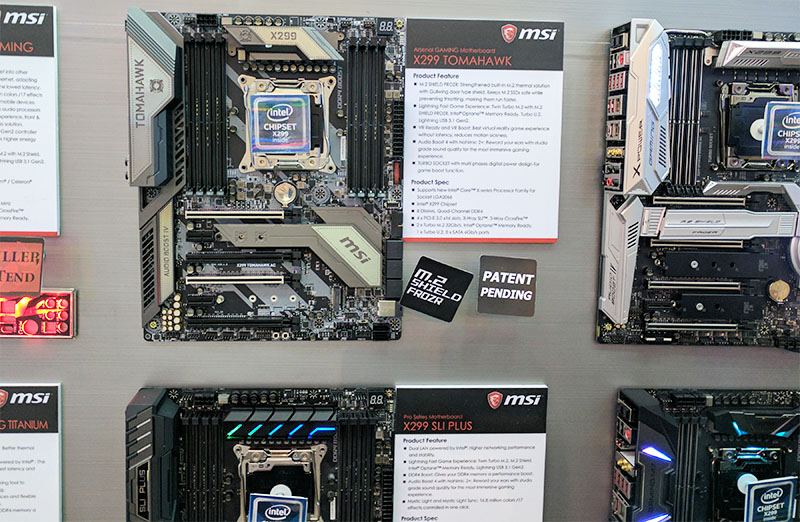
They were absolutely everywhere. One item you will note is that these motherboards generally look like slightly updated X99 platforms.
Final Words
Expect that the next-generation Intel Core series and X299 platforms will launch at the end of June 2017. The easiest way to think of this is a launch at the low end to protect Intel against Ryzen and at the high-end to put high core count and clock speed CPUs into an X99-like platform.
At STH, we would mention that if you want high-core-count, the X299 platform is a great option. On the other hand, if you do not need the single-threaded speed (e.g. you have a well mult-threaded video encoder or are doing deep learning tasks), those with Intel Xeon E5 V3/ V4 platforms are unlikely to get a major upgrade from the new X299 platform.

